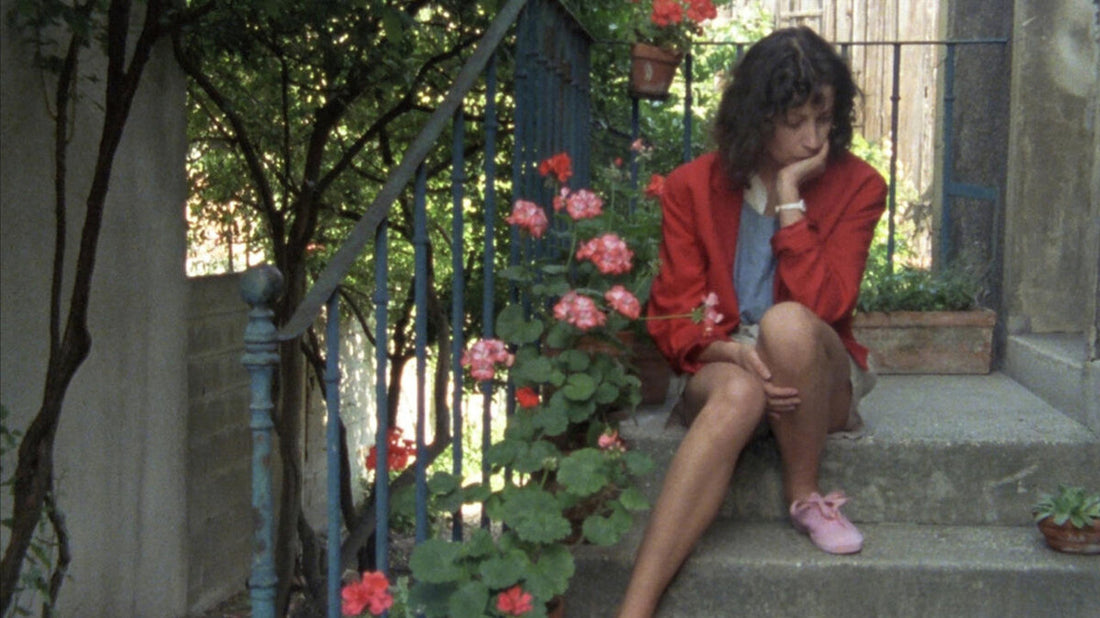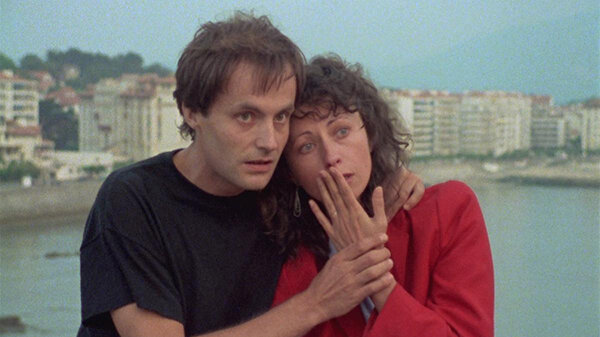Women have often travelled roads alone, but when it comes to foreign travel, the idea of a solo trip is less explored. From Noah Baumbach’s monochrome picture to Eric Rohmer’s own portrait of the female experience on holiday, Jennifer Verzuh looks at what a woman can gain from her own company.
In Frances Ha, Greta Gerwig's titular character takes a spontaneous solo trip to Paris for the weekend, aided by her new credit card. It's a decision motivated by a frustration with her current life, and a desire to do, see and be a part of something special. The results, however, are disastrous; she spends much of the trip asleep, is unable to reach her friends and by the end has massively overspent. Her sightseeing ultimately amounts to her briefly wandering through the foreign city, jetlagged, lonely and disappointed.
Pre-dating this ill-fated vacation, Eric Rohmer's 1986 The Green Ray explores the struggles of travelling alone and how quickly one’s excitement for a trip can dissolve into a sorrowful introspective affair. His film’s protagonist, Delphine (Marie Rivière), is a young, passionate and anxious Parisian woman, and a single one – as her friends are quick to remind her on every occasion. But despite not having a romantic partner to go with, Delphine still desperately wants to take a trip for the summer break.
Yet, she vehemently opposes the idea of going by herself. When her friends propose she does so, she lashes out, calling it “inhumane.” She's afraid to be alone and can’t imagine she’ll possibly meet anyone, despite her friends’ encouragement. "I'm not the adventurous type,” she tells a friend. “That’s just it. This year you have to try,” they respond. She still resists, but unfortunately, after tagging along with her friend’s family doesn’t work out as she had hoped, she’s forced to do just that.
During her travels, Delphine becomes acutely aware of, and highly uncomfortable with, her status as a single woman. At her third of four total destinations, she visits a crowded, sunny beach by herself and immediately feels awkward. Rivière’s face is full of hesitation and longing, as she makes her way into the water, surrounded by children playing and lovers sunbathing. As the camera surveys the scene, Rohmer makes it clear Delphine is out of place here, alone amongst all the fun.
She goes through the typical motions of a holiday, but it’s not enjoyable. Hikes through lush green, flower-strewn trails near the waterfront make her cry. She works on her tan at the beach and explores the areas, but it’s not enough. At the end of the night, she’s still by herself, dejectedly eating dinner on her hotel bed.
When opportunities do come up to socialize, Delphine flounders. While she hates being alone, the prospect of trying to form temporary, surface-level friendships and romances on vacation is even more distasteful to her. Delphine refuses to play the part of the flirty and carefree tourist society expects of women. The other women she encounters in her travels easily engage and converse with men casually, showing them the sexy, fun foreigner they want to see. Meanwhile, she runs away when men approach her looking for something in return. She demands a deep and undeniable connection, although she doesn’t make any discernible effort to find it.
Whether she realizes it or not, it’s clear that Delphine went on this holiday to avoid feeling excluded. The idea of remaining in Paris by herself, while everyone else left the city with their friends, lovers and families, terrified her. However, these trips have ultimately left her feeling lonelier than ever. She has no one to distract her from herself. There’s no friend or partner to fill the silence with meaningful, or even meaningless, conversation, and keep one’s mind from going to somber places. It’s just Delphine, alone, in the presence of the French countryside, mountains and sea.
Cinematographer Sophie Maintigneux gorgeously captures Cherbourg, Biarritz and the Alps as Delphine continues in her search for the perfect vacation. Nature can be freeing and beautiful, as we’re reminded in close ups of the waves gushing and crushing amongst the tidepools and rocky coast of Biarritz, but in following Delphine in these landscapes as her face crumbles, we’re reminded that it also has the ability to make us feel small, vulnerable and utterly alone in the face of it. In the Alps, after casually making her way up the trails, marked with ice and greenery, Delphine’s silhouette stands alone and isolated on the slanting rocky mountainside as she looks out onto the imposing, seemingly endless, snow-capped mountain ranges facing her. It’s the type of scene that should inspire one with awe, but instead she comes away exhausted, confused and can only react by leaving the area entirely.
Delphine is also deprived of one of the key comforts of modern day travel: social media. Nowadays if your friends, or even loose acquaintances, take a trip, nine out of 10 times you know about it through Instagram, Facebook, Snapchat, or Twitter. Even if you don’t have someone right there with you, there are endless viewers online to show your trip to and get recommendations from. It’s a way to feel less alone, and to validate your choice to go. Unlike Frances, given the decade, Delphine doesn’t have anyone to validate her journeys or share them with.
Confronted with this unintended solitude, Delphine has no choice but to reckon with her self-imposed singlehood and sadness. It breaks her down to tears and makes her continually regret leaving home and head elsewhere. But, it also brings a self-awareness that she doesn’t want to be alone any longer. In taking in these lovely landscapes by herself, she aches to have someone by her side to make it mean more. She comes to the conclusion at last that she can’t continue hiding and waiting, and has to put herself out there and look, really look, at others and allow them to look back at her if she wants to have a shot at forming a real connection with someone.
This realization, brought on by her meditations and encounters while traveling alone, ultimately leads to her meeting someone. Delphine finally finds the love she'd been simultaneously waiting for and afraid of. She pushes past her fears to meet the gaze of a man, rather than averting it for the first time since we've met her. She acts on it, and as a result, is able to appreciate the views of such a beautiful place with another person, who acknowledges her feelings of awe at the sunset with his own.
When they go to Saint-Jean-de-Luz together, she's genuinely excited, for perhaps the first time in the film. Their day together has smiles and laughter along with candid conversations about love and loneliness. The focus on this last destination though is not on the nature or city, but on each other.
But even if this sweet meet-cute never happened and Delphine had gone home still single, would this trip have been worth it? Despite all of the awkward, solitary, and teary moments she experiences, I think so. Both Frances and Delphine have a travel experience that doesn’t result in the joyful, exciting or social holiday either were hoping for. And yet, they each seem to discover something about life and themselves in the process.
Frances finds that she can’t escape herself or her problems, and maybe her life doesn’t need to be contain a grand, sophisticated adventure, at least at this point in time. Even if she doesn’t want it to, her life and her friends' are changing and shrugging off her responsibilities to embark on a fantasy trip out of the country won’t make help or make her necessarily a better, wiser person as anyone who regularly travels loves to proclaim. In fact, in her situation she realizes it just made things worse, and she needs to deal with her issues head on.
Delphine comes away with the knowledge that yes, she can be by herself. She was unsure at the start of the summer if she could actually do this trip on her own, and despite it being a struggle at times, she proved that she indeed could. She’s more than capable of doing exactly as she likes all alone, but, equally importantly she knows now she doesn’t want to. She is able to, at last, accept that even if she doesn’t need somebody, she wants them, and is ready for the first time since her heartbreak to actively seek out a relationship with someone new.
Jennifer Verzuh (@MstressAmerica) is a Los Angeles based film critic. She’s had her work published at Little White Lies, Screen Queens, and Reel Honey Magazine. In addition to her writing, her love of indie cinema has also led to her working at film festivals throughout the US.


